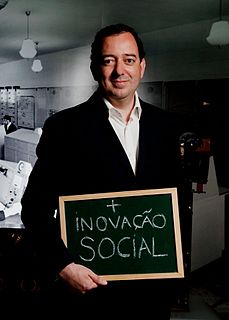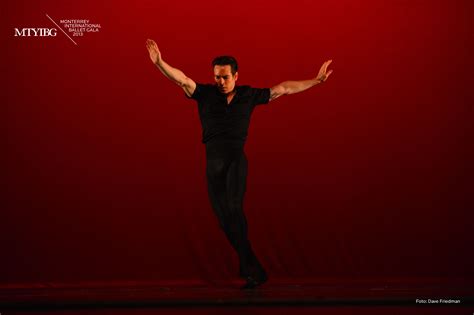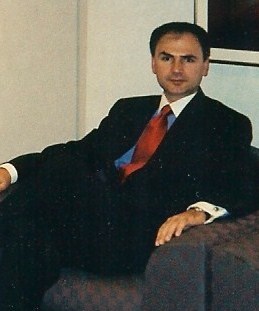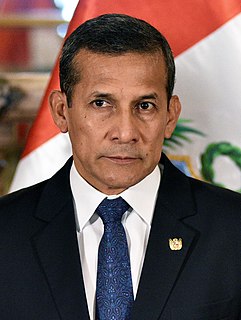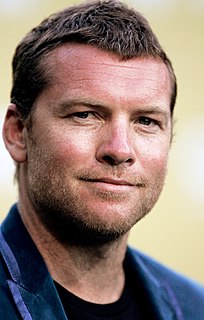Top 1200 Growing Economy Quotes & Sayings - Page 16
Explore popular Growing Economy quotes.
Last updated on December 23, 2024.
When you have done the spiritual growing up you realize that every human being is of equal importance, has work to do in this world, and has equal potential. We are in many varied stages of growth; this is true because we have free will. You have free will as to whether you will finish the mental and emotional growing up. Many choose not to.
Our economy has become completely different, on the whole. The size has changed. The economy has almost doubled in size. And the quality is changing, not as fast as we would like it to, but the structure is changing. Our Armed Forces are completely different today from what they were, say 15 years ago or so. All of this, including our great history, great culture, all of this, not just what we see today, is what makes the vast majority of Russia's citizens feel proud for their country.
Given the fact that poverty is growing, more and more Americans are losing health insurance, health care costs are going up, the middle class is shrinking, the gap between the rich and the poor is growing wider. That speaks to the weakness of the opposition. People do not like George W. Bush. But I think it's fair to say that they are not flocking to the Democratic Party, or see the Democrats as a real alternative.
In the eighties and nineties, the innovation agenda was exclusively focused on enterprises. There was a time in which economic and social issues were seen as separate. Economy was producing wealth, society was spending. In the 21st century economy, this is not true anymore. Sectors like health, social services and education have a tendency to grow, in GDP percentage as well as in creating employment, whereas other industries are decreasing. In the long term, an innovation in social services or education will be as important as an innovation in the pharmaceutical or aerospatial industry.
Feed the growing human being, feed him with the sort of experience for which from year to year he shows a natural craving, and he will develop in adult life a sounder sort of mental tissue, even though he may seem to be 'wasting' a great deal of his growing time, in the eyes of those for whom the only channels of learning are books and verbally communicated information.
There was no special event that made me decide. I had collected some photos and the idea was in the back of my mind for a long time. It was growing and growing, so finally I said, 'I must paint this.' I come from East Germany and am not a Marxist, so of course at the time I had no sympathy for the ideas, or for the ideology that these people represented. I couldn't understand, but I was still impressed. Like everyone, I was touched. It was an exceptional moment for Germany.
Most of the productivity gains appear to go to the top 1 percent. Most people don't have enough income and as a result, they borrow additional money by using their credit card and they fall into high debt. The result of the growing income gap is a slower growing GDP (too few people with money to spend) and a rising tide of indebtedness.
The anger of the weak never goes away, Professor, it just gets a little moldy. It molds like a beautiful blue cheese in the dark, growing stronger, and more interesting. The poor and the weak die with all their anger intact and probably those angers go on growing in the dark of the grave like the hair and the nails.
I think guys, because we share a history growing up of being stereotyped, because there are fewer of us in the dance world, that contributes early on to a bond among us. A lot of us share stories of being harassed or teased growing up - there's a certain deep camaraderie that's formed through that shared struggle.
Given our inevitably incomplete knowledge about key structural aspects of our ever-changing economy and the sometimes asymmetric costs or benefits of particular outcomes, a central bank... need to consider not only the most likely future path for the economy but also the distribution of possible outcomes about that path. They then need to reach a judgment about the probabilities, costs, and benefits of the various possible outcomes under alternative choices for policy.
The economy in the next 20 to 25 years is going to change more than they did in the last 20, 25 years. And that's because exponential trends are affecting a bigger and bigger share of the economy. So we have some huge disruptions in store, and I can't predict exactly what the innovations are going to be. If I did, I would have already invented them. But I think they'll be comparable to the innovations we saw in the past 20, 25 years if not greater.
A person who undertakes to grow a garden at home, by practices that will preserve rather than exploit the economy of the soil, has his mind precisely against what is wrong with us... What I am saying is that if we apply our minds directly and competently to the needs of the earth, then we will have begun to make fundamental and necessary changes in our minds. We will begin to understand and to mistrust and to change our wasteful economy, which markets not just the produce of earth, but also the earth's ability to produce.
The fast growing markets - the BRICS and Next Eleven - are the key. The next billion consumers are not going to come from the US or Western Europe - they are coming from Asia, Latin America and Africa. Formula One follows our strategy: fast growing markets, data, and digital. All those three things Formula One has. And it involves a stunning array of companies. Now that doesn't mean there can't be more.
Money is not a part of the visible sector of the economy; people do not consume money. Money is not a physical factor of production, but rather a yardstick for measuring economic input, economic outtake and the relative values of the real goods and services of the economic world. Money provides a method of measuring obligations, rights, powers and privileges. It provides a means whereby certain individuals can accumulate claims against others, or against the economy as a whole, or against many economies.
I've tried, at every step in life, to find a lesson. And accepting criticism with the same grace that you do the applause is something every young athlete needs to learn. ... I think it served me well to learn how to handle everything that came with the game's ups and downs. Some people call it growing another layer of skin. I just call it growing up.
I guess...on one hand, I spent way too much time watching science fiction and reading science fiction when I was growing up. But a part of it is I also never felt much of a connection to the world in which I lived while I was growing up, and so, oddly enough, I think I felt a lot more connected to the worlds that I read about in science fiction.
Growing up is something that you do your whole life. I want to always feel that I can be a kid if I want. Growing up has some negative connotations. Like, you're not supposed to roll around on the ground anymore. You're not supposed to make fun of yourself. You're not supposed to ride a bicycle. But I'm a Toys-R-Us kid.
I just think, realistically, there's a lot of room outside the Trump populist right and the Bernie-Sanders-Elizabeth-Warren populist left. There are a lot of us who believe in open trade, open borders, a dynamic forward-looking economy, not a nostalgic economy, but do want to provide a significant level of social service or sort of economic Milton Friedman foreign policy, Ronald Reagan domestic policy, Franklin Roosevelt. And there's a lot of room in the center.
You know, I think my biggest concern [if Mitt is elected], obviously, would just be for his mental well-being. I have all the confidence in the world in his ability, in his decisiveness and his leadership skills, in his understanding of the economy, in his understanding of what's missing right now in the economy - you know, pieces that are missing to get this jump-started. So for me I think it would just be the emotional part of it.
Nevertheless, it is necessary to remember that a planned economy is not yet socialism. A planned economy as such may be accompanied by the complete enslavement of the individual. The achievement of socialism requires the solution of some extremely difficult socio-political problems: how is it possible, in view of the far-reaching centralisation of political and economic power, to prevent bureaucracy from becoming all-powerful and overweening? How can the rights of the individual be protected and therewith a democratic counterweight to the power of bureaucracy be assured?
We need to deal with three things that are important: first, we need a very deep reconsideration of how we are dealing with the economy. Second, there must be a very deep reconsideration of our way of life. We cannot simply adopt American-style consumer culture. To Islamize that is to de-Islamize Islam.Thirdly, it is important for us to understand the economy and the environment are common challenges for everyone. This is where the singularity of Islamic principles needs to join the universal values that we share with others.
Well, the terrible thing right now, and I don't know the statistics, but there's a growing concern in some communities about how rapidly people are sent from school to jail, how quickly they're put into the criminal justice system. And of course the rapidly growing number of brown people, both men and women, in prison. And this is terrible.
There are new gods growing in America, clinging to growing knots of belief: gods of credit card and freeway, of Internet and telephone, of radio and hospital and television, gods of plastic and of beeper and of neon. Proud gods, fat and foolish creatures, puffed up with their own newness and importance. "They are aware of us, they fear us, and they hate us," said Odin. "You are fooling yourselves if you believe otherwise.
Obviously, signing on with Puma right when I turned pro, it's been a great fit for me to show off my colorful lifestyle as far as where I grew up and how I grew up, growing up on a public driving range and growing up around action sports my whole life. Not exactly the normal road that guys take to get to the PGA Tour.
Now we're in a very different economy. Throughout the late 1980s and 1990s American management started to do the right things. There was extraordinary investment in technology. The dominant questions now are less how to do it better, how to manage better, how to make the economy better, than how to have fuller and more meaningful lives. Because the irony is, now that we've come through this great transition, even though our organizations and our people are extraordinarily productive, many feel that the nonwork side of life is very thin.
I think the coca grower needs an alternative to stop growing coca. We need to have a comprehensive policy, which means separating the coca-growing population from the drug-trafficking networks through more presence of the state in the fields of health, education, infrastructure. We need to fight against money-laundering and the exporting of large amounts of cocaine through our ports.
I feel like in the reading I did when I was growing up, and also in the way that people talk and tell stories here in the South, they use a lot of figurative language. The stories that I heard when I was growing up, and the stories that I read, taught me to use the kind of language that I do. It's hard for me to work against that when I am writing.
I favor the policy of economy, not because I wish to save money, but because I wish to save people. The men and women of this country who toil are the ones who bear the cost of the Government. Every dollar that we carelessly waste means that their life will be so much the more meager. Every dollar that we save means that their life will be so much the more abundant. Economy is idealism in its most practical form.
In essence, the stock market represents three separate categories of business. They are, adjusted for inflation, those with shrinking intrinsic value, those with approximately stable intrinsic value, and those with steadily growing intrinsic value. The preference, always, would be to buy a long-term franchise at a substantial discount from growing intrinsic value.
Of course I'm troubled by huge consumer debt levels - we've pushed consumer credit very hard in the US. Eventually, if it keeps growing, it will stop growing. As Herb Stein said, "If something cannot go on forever, it will stop." When it stops, it may be unpleasant. Other than Herb Stein's quote, I have no comment. But the things that trouble you are troubling me.
There's the tree with the branches that everyone sees, and then there's the upside-down root tree, growing the opposite way. So Earth is the branches, growing in opposing but perfect symmetry. The branches don't think much about the roots, and maybe the roots don't think much about the branches, but all the time, they're connected by the trunk, you know?
I've got to challenge myself more, and not listen to anybody else, and not listen to any media or bloggers, but just listen to myself. I've got to push myself. If I don't believe I'm growing, and I believe I'm just coasting, then I've got to get off the train. If I feel I'm growing, I have to keep going. It's a long marathon.
The creative process ignites our imagination, and I believe that that same imagination is what will propel us forward with issues of social change. I do think we have to acknowledge that we are a very capitalistic and consumptive nation, and that talk about conservation or issues of sustainability is never going to be popular with the dominant culture because it means checks and balances on an economy that is reserved for the dollar, rather than an economy that honors and respects spiritual resources and the right of all life to participate on the planet, not just our species.
There's 6 million people living in poverty today, more than when Barack Obama got elected. 6.5 million people are working part-time, most of whom want to work full-time. We've created rules and taxes on top of every aspiration of people, and the net result is we're not growing fast, income is not growing.
You can have a strong economy or you can help the environment, but you can't do both at the same time. That's ridiculous. In fact, as a sustainable vision for a healthy economy has to involve changing our energy policy and changing with respect to the natural world. Because we're hitting nature's thresholds, we're hitting nature's limits with respect to water and crop yields and energy use and fossil fuels heating the atmosphere at the same time we're past global peak and running out of that.
We're foolish if we think we're going to end mass incarceration unless we are willing to deal with the reality that huge percentages of poor people are going to remain jobless, locked out of the mainstream economy, unless and until they have a quality education that prepares them well for the new economy. There has got to be much more collaboration between the two movements and a greater appreciation for the work of the advocates in each community. It's got to be a movement that's about education, not incarceration - about jobs, not jails.
Trump's vision for America parallels greatly with the vision that Ronald Reagan used and he implemented to revive the country during a very similar time where we had a president who told us that we were in a time of malaise in the American economy and that things are just gonna be that way for a while. Reagan steps up in that great first inaugural address and says, "And why shouldn't we dream great dreams? After all, we're Americans." And the American people came roaring back, the American economy came back.
It is eminently possible to have a market-based economy that requires no such brutality and demands no such ideological purity. A free market in consumer products can coexist with free public health care, with public schools, with a large segment of the economy -- like a national oil company -- held in state hands. It's equally possible to require corporations to pay decent wages, to respect the right of workers to form unions, and for governments to tax and redistribute wealth so that the sharp inequalities that mark the corporatist state are reduced. Markets need not be fundamentalist.
I wouldn't necessarily assume that because Capricornia has traditionally been a Labor seat, that it'll go back to the Labor Party this time because the big issue in Capricornia which is based on the city of Rockhampton is the fact that the economy is - the regional economy is in a poor shape as a result, in particular of the decline of the mining industry and they are looking to the Carmichael mine, the Adani project as containing all of the prospects that they see for their future and that is why people in Rockhampton are very, very fearful of a Labor-Greens government.
Our practical choice is not between a tax-cut deficit and a budgetary surplus. It is between two kinds of deficits: a chronic deficit of inertia, as the unwanted result of inadequate revenues and a restricted economy; or a temporary deficit of transition, resulting from a tax cut designed to boost the economy, increase tax revenues, and achieve -- and I believe this can be done -- a budget surplus. The first type of deficit is a sign of waste and weakness; the second reflects an investment in the future.
In the name of economy a thousand wasteful devices would be invented; and in the name of efficiency new forms of mechanical time-wasting would be devised: both processes gained speed through the nineteenth century and have come close to the limit of extravagant futility in our own time. But labor-saving devices could only achieve their end-that of freeing mankind for higher functions-if the standard of living remained stable. The dogma of increasing wants nullified every real economy and set the community in a collective squirrel-cage.
I felt like the luckiest kid in the world. And I was. I was growing up middle-class in a time when growing up middle-class in America meant there would be jobs for my parents, good schools for me to prepare myself for a career, and, if I worked hard and played by the rules, a chance for me to do anything I wanted.
Energy is a sector of the economy that has been particularly resistant to innovation. This is precisely the problem. It is why we are still dependant on energy sources that are 100 to 150 years old while virtually every other sector of the economy has transformed itself. This is why we believe that the faith that many environmentalists still hold that carbon regulations and taxes will drive sufficient private sector investment into energy markets to create the kind of innovation we need is unfounded.
The fundamental reason why carbon dioxide in the atmosphere is critically important to biology is that there is so little of it. A field of corn growing in full sunlight in the middle of the day uses up all the carbon dioxide within a meter of the ground in about five minutes. If the air were not constantly stirred by convection currents and winds, the corn would stop growing.
The government will pay certain farmers to not grow corn. Wow. Where's my check? That'd be great. "Hey, what do you do for a living?" "Well, I don't grow corn. Get up at the crack of noon, make sure there's no corn growing. I'm gonna get up early tomorrow. And not plow. You know, we used to not grow tomatoes-but there's more money in not growing corn."






